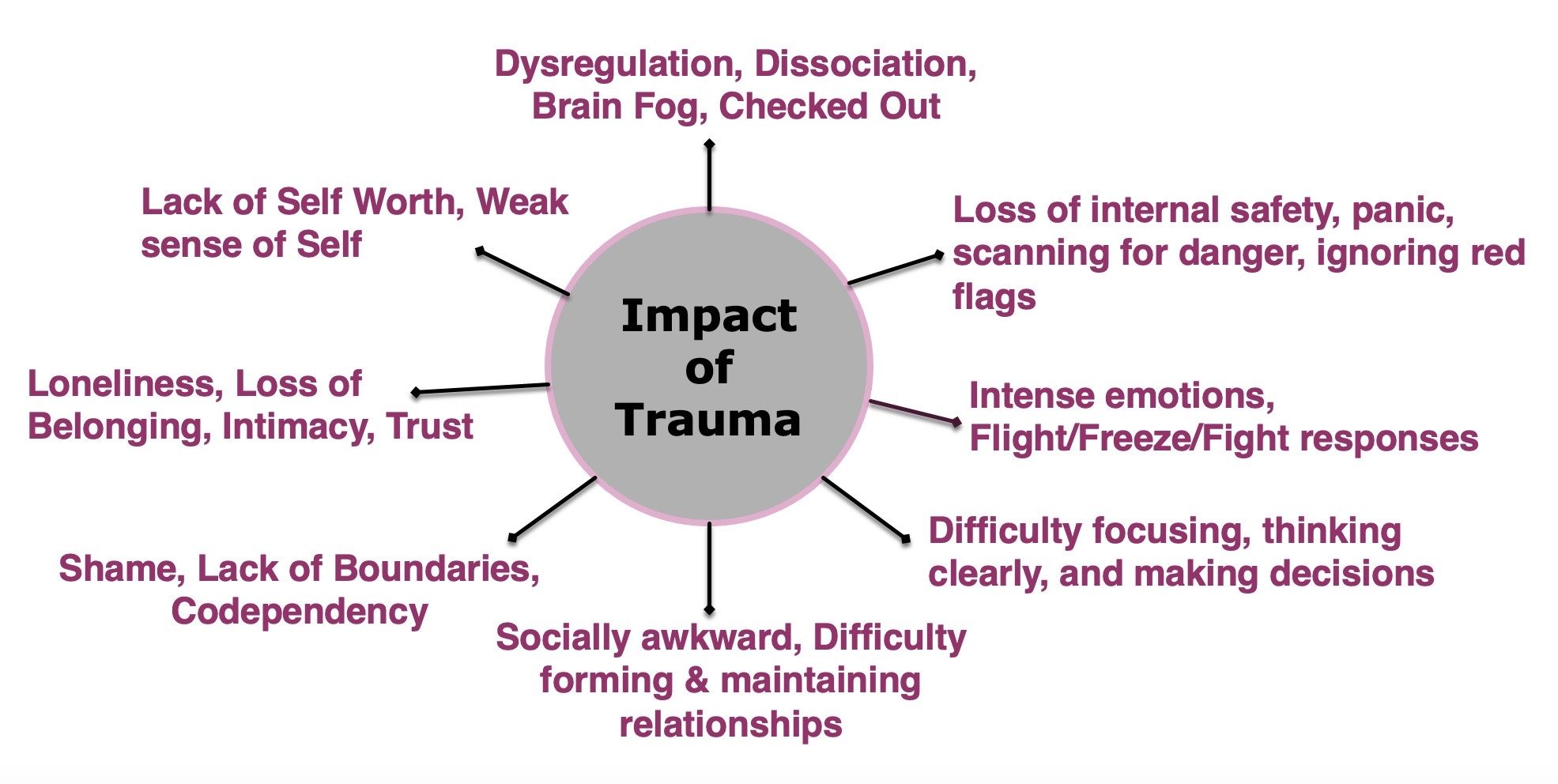Childhood Trauma Healing Program
This program is for adults who experienced adverse childhood experiences and dealing with the impact of that trauma in their relational, familial, professional, and internal lives. Childhood trauma is a direct injury to the brain and our sense of self in the world. You can learn more – Childhood Trauma.
The program is 8-12 weeks long, designed to heal and regulate your nervous system, repair your sense of self, create safety, trust, love, belonging, and own your power to shape your life. The minimum age to apply is 18 years old.
The program is built on three main pillars –
- Self-awareness on how childhood trauma has shaped and still impacts your life.
- Neuroscientific Trauma Healing Tools to heal the many impacts of trauma
- CoCreative practices to ease and fast track the healing process
Each week will focus on the following –
-
Regulate the brain, body, and nervous system.
-
Repair sense of self and the body.
-
Increase internal safety and reduce panic.
-
Understand your relational attachment styles
-
Learn to create and maintain healthy relationships.
-
Learn to create and uphold healthy boundaries.
-
Create love, belonging, and intimacy
-
Release fear around your needs, wants, and desires
-
Repair internal trust and discernment process
-
Own your Creative Power to shape your life.

The minimum age to apply is 18 years old. Sessions are available in multiple timezones and held online over Zoom. Each session will last 90 mins. Contact contact@seemaagarwal.com to determine fit and apply.
Impact of Childhood Trauma in Adulthood
Brain Dysregulation
Childhood trauma dysregulates the brain, emotions, and body. It is a stress response that makes us spaced out, checked out, dissociated, numb, and overreactive. The brain becomes foggy. One becomes somatically disconnected and half unconscious at crucial moments. Susceptible to repeating similar mistakes. Conscious choices are tough to make.
Self-related challenges
Childhood trauma comes with painful amounts of developmental deficits. It’s like missing the memo on how to be human in this world. The sense of self, needs, desires, and what one wants to be in life is foggy. The inner world feels so complex and confusing that sharing it is unsettling. One moves between feeling special and unworthy.
Emotional challenges
Childhood trauma creates an inner world that is chronically unsafe. One is constantly scanning the environment for danger. And yet continually missing red flags. Living in constant abuse suppresses the body’s wisdom and knowing, which leads to a lack of self-trust and inability to discern. One feels more helpless than others and in continual need of external inputs.
Cognitive challenges
Dysregulated brain makes cognitive functions like learning, reading, concentrating, analyzing, problem-solving, and perceiving quite challenging. This makes learning from our mistakes harder. Academic success and vocation planning do not come easy.
Social challenges
Childhood trauma is speaking a socially awkward language. Groups are particularly difficult. It is easier to be in a one-on-one setting. One is less inclined to approach or take the initiative. Task-oriented settings are easier than unstructured ones.
Relational challenges
Childhood trauma impairs the ability to love, belong, resolve conflicts, ask for what one needs, draw boundaries, and feel lovable. Relationship attachment patterns are distorted. There is a tendency to avoid, fight, flee, freeze when things go wrong.
